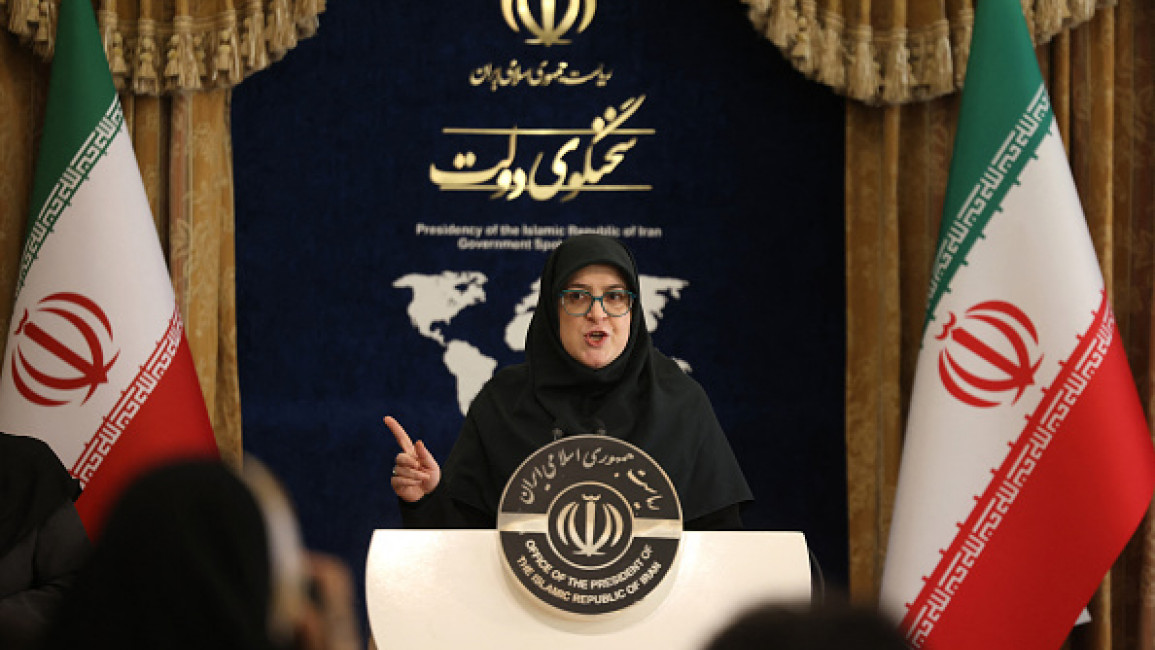Iran moves to triple military budget amid Israel tensions
Iran's government has proposed tripling its military spending, an official said Tuesday, as tensions with arch-rival Israel rise following recent tit-for-tat missile strikes.
Government spokeswoman Fatemeh Mohajerani outlined the move that would see "a significant increase of more than 200 percent in the country's military budget" at a news conference in Tehran, without elaborating.
Tehran has not disclosed any exact figures, but according to the Stockholm International Peace Research Institute (SIPRI) think tank, Iran's military spending in 2023 was about $10.3 billion.
The proposed budget will be debated, with lawmakers expected to finalise it in March.
"All efforts have been made to meet the country's defence needs and special attention has been paid to this issue," said Mohajerani.
The plan came days after Israel carried out air strikes on military sites in Iran in response to Tehran's October 1 attack, itself retaliation for the killing of Iran-backed leaders and a Revolutionary Guards commander.
At least four soldiers were killed in the Israeli strikes, according to Iran's military, and Iranian media reported Monday that a civilian was also killed in the attack.
Afterwards, Israeli Defence Minister Yoav Gallant said his country's strikes had shifted the balance of power between the sworn enemies.
"The enemy has been weakened -- both in its ability to produce missiles and in its ability to defend itself. This changes the balance of power," Gallant said in a statement.
Iran's attack on October 1, when it said it fired 200 projectiles at Israel, was its second-ever direct attack on its arch-enemy.
Israel said most of the missiles were intercepted but one person was killed.
The Islamic republic conducted its first direct attack on Israel in mid-April, in response to a suspected Israeli strike on Iran's consulate in the Syrian capital Damascus that killed seven Revolutionary Guards, including two generals.
The tit-for-tat moves unfold amid Israel's ongoing war in Gaza, which has expanded in recent weeks to include Lebanon's Hezbollah.
On Monday, Iran and Israel accused each other of endangering Middle East peace in a heated exchange at a UN meeting.
SIPRI says Israel's military spending grew by 24 percent, reaching $27.5 billion in 2023 alone, coming second in the region after Saudi Arabia.
Current figures on Israel's 2024 military spending are unavailable, though the country has benefited from substantial military aid provided by the United States since the outbreak of the war.
Israel has for the decades been the largest recipient of US assistance.
According to Iran's official IRNA news agency, the country's Islamic Revolutionary Guard Corps receive the highest portion of the country's military budget.
The regular army and other branches of the armed forces receive a smaller allocation, the agency said based on figures of the current fiscal year which ends in March 2025.
Iran does not recognise Israel, and the two countries have fought a shadow war for years.
The Islamic republic accuses Israel of having carried out a wave of sabotage attacks and assassinations targeting its nuclear programme.




 Follow the Middle East's top stories in English at The New Arab on Google News
Follow the Middle East's top stories in English at The New Arab on Google News
![The US vetoed a UN Security Council (UNSC) resolution demanding a ceasefire in Gaza [Getty]](/sites/default/files/styles/image_330x185/public/2185152251.jpeg?h=7ef8ac04&itok=RpLSj2pu)

![An attack by paramilitary forces in Sudan has killed at least 40 people [Getty]](/sites/default/files/styles/image_330x185/public/2182364341.jpeg?h=a5f2f23a&itok=r8Fkhxdj)